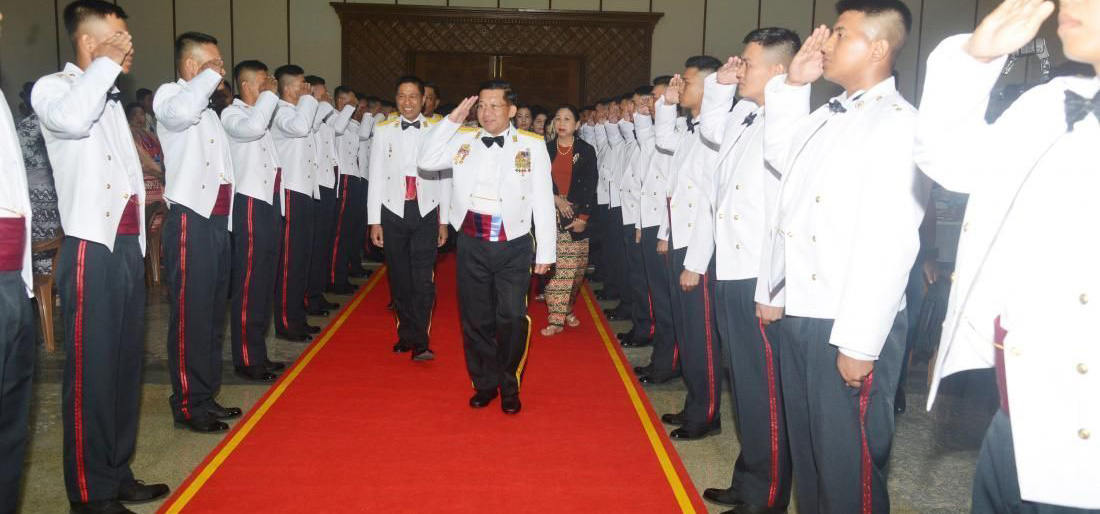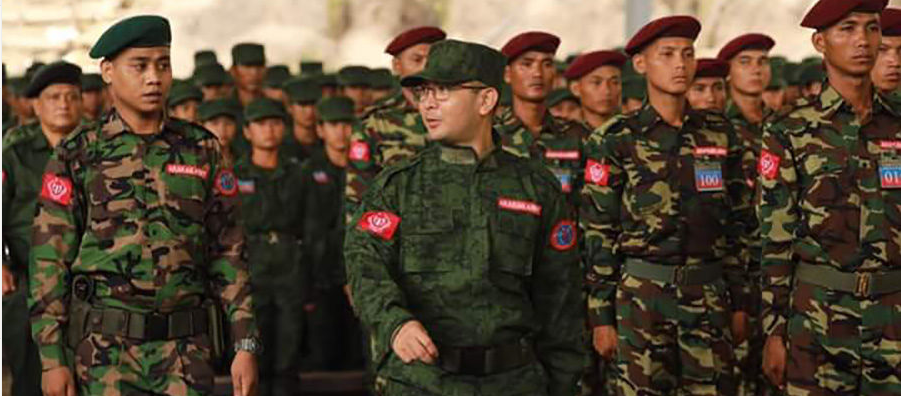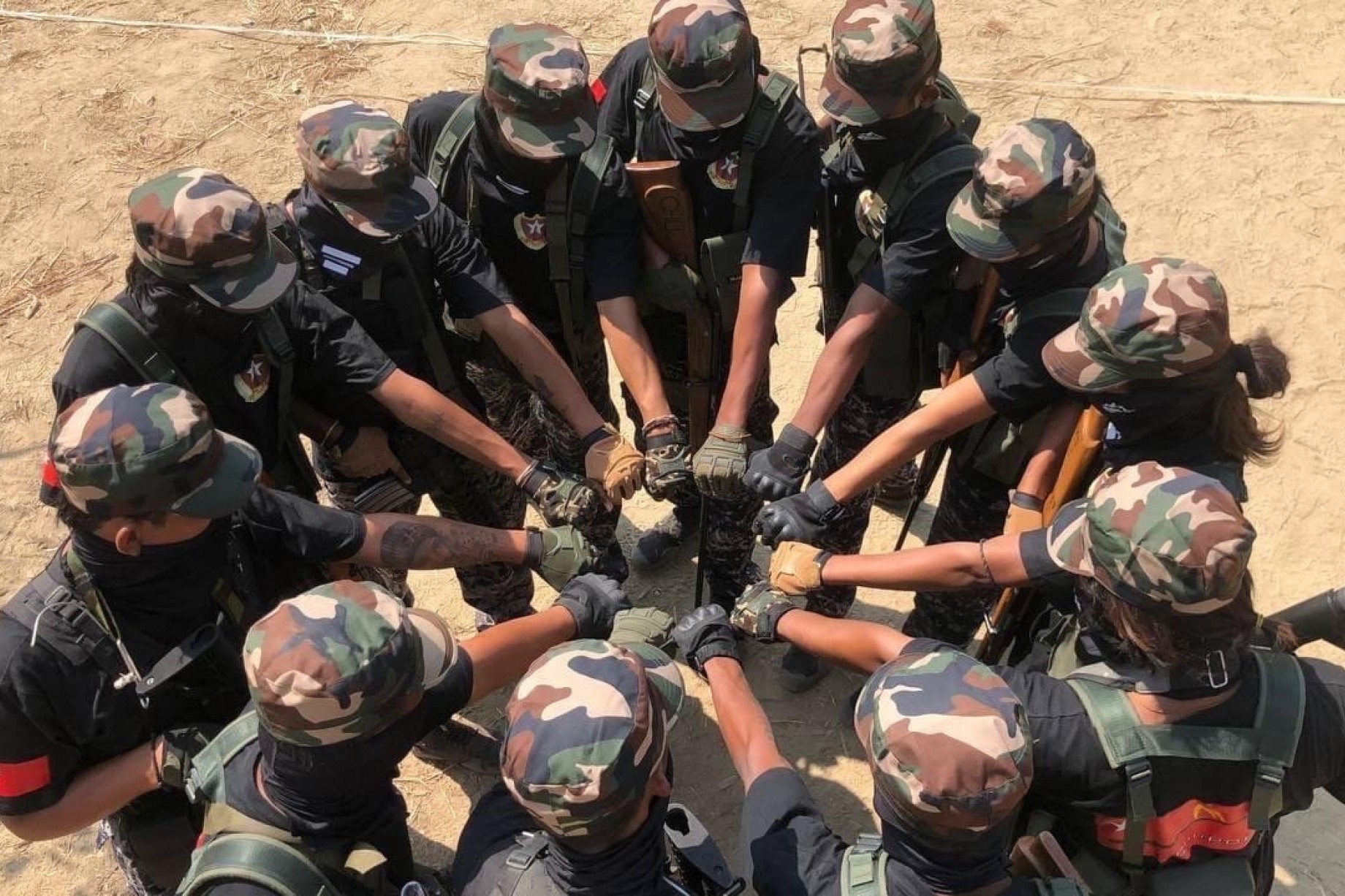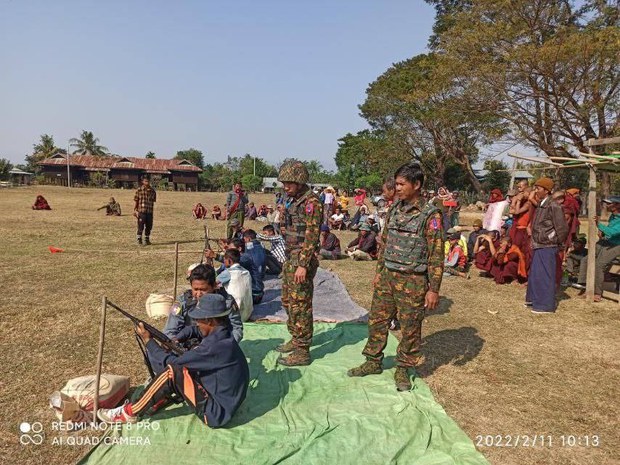“The Tatmadaw wants you,” used to be a familiar slogan on recruitment posters across Myanmar.
Propaganda songs, like one which began: “Support the great Tatmadaw in every way to help it gain strength, never should we forget comrades who are our kin,” were played on the television and radio.
But recruitment has broken down, forcing the regime to buy recruits since before the 2021 coup. Officers are being offered promotions and other incentives to find recruits, according to analysts.
Battalions were reportedly offering 500,000 kyats to recruits in January and they increased the payment if they could not find the required numbers. By April they were offering 1.5 million kyats, according to defectors.

“The price has doubled. I heard they are paying 2 to 3 million kyats but there are few applicants and battalions compete for recruits,” said former captain Lin Htet Aung.
The ethnically Bamar areas and Rakhine State used to be the main source of recruits as jobs were often scarce but those areas are now resistance strongholds.
Troops torch numerous villages which used to provide recruits and the junta’s Defense Services Academy is struggling to find potential young officers, while resistance numbers swell.
In Rakhine State the Arakan Army rose to prominence in 2016 and the armed group is increasingly establishing a parallel administration in the state.

Traditionally recruits must be citizens of Myanmar aged between 18 and 25 and educated to at least sixth grade with no criminal record. Graduates can apply for officer training until they turn 30.
But the net has widened to include criminals, those with heavy debts and drug addicts, according to former personnel.
“Battalion commanders have to find one recruit per month when they are at the rear,” said U Lin Htet Aung. “They search for indebted people and settle their debts in exchange for them signing up.”
The eligibility criteria has also reportedly been relaxed.
“There are 13 visible signs in the eligibility criteria, including not being bowlegged. Previously they carefully examined eyesight, stamina and recruits’ bodies, but not now. They will recruit anyone, regardless of their condition,” said Lin Htet Aung.
Falling interest has prompted the regime to extend deadlines for applications to academies.
A resistance fighter from Khin-U Township in Sagaing Region said: “Only the extremists indoctrinated either racially or religiously will join. Normal people won’t join.”
The Global Firepower website estimated before the coup that Myanmar’s military had 515,000 personnel.
Other observers estimated the numbers at between 300,000 to 350,000 in early 2021, which has now fallen to around 200,000 with an improbably high proportion of 100,000 engaged in combat.
Casualties and desertions have been heavy since the coup.
Approximately 20,150 soldiers were estimated to have been killed and more than 7,000 were reportedly injured in the year after the civilian National Unity Government declared war on September 7 last year.
The information officer for the Cobra Column, which is engaged in fierce fighting with the junta in Karen State, said: “Some soldiers have defected not because they want to fight the dictatorship but because they don’t like their commanders or they are exhausted. They have defected not because they support the revolution. There is growing disunity. They are tired and morale has plummeted.”

Soldiers’ wives and relatives have undergone basic training and they perform guard duty at camps and are reportedly forced to serve on the frontlines. And food is often scarce.
Former private Hein Soe, who has defected, said: “I was disappointed after I could barely see my family for three years. We weren’t getting food for long periods so I left.”
The regime has invited unmarried women aged 18 to 25 to join as privates. Adverts have repeatedly appeared on the junta-controlled media this year claiming female recruits will be given four months of training and assigned to combat-support roles in either the army, navy or air force.
The junta looks to recruit the children of personnel but officers traditionally send their offspring to study abroad or into business.

Recruiters have targeted the children of other ranks and members of pro-junta Pyu Saw Htee groups.
The heavy casualty numbers are creating gaps the recruiters cannot fill as troops flee to avoid combat.
After the coup protesters shouted, “The military is breaking” and analysts say that is increasingly coming true.

















